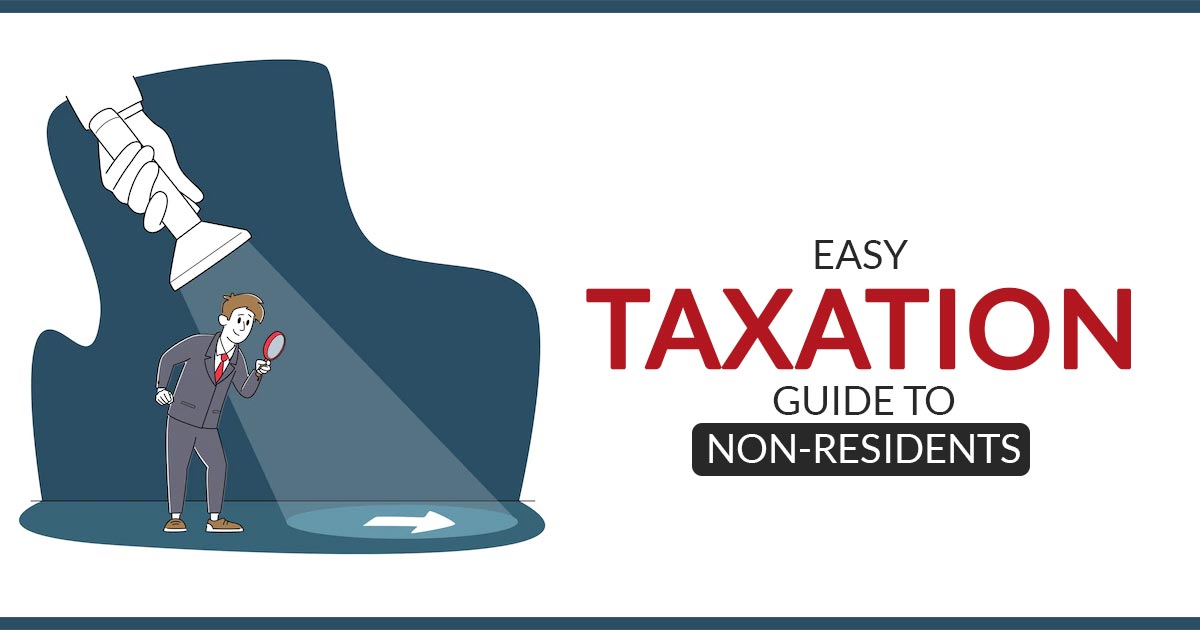
Under Section 195 of the Income-tax Act (‘IT ACT’), any payment incurred to the non-resident or to the foreign company in which the tax would need to be deducted. This article discusses the issues in dealing with the concern.
Critical Points Related to Non-resident Taxation
- Making the payment to non-residents needed to get deducted as beneath the rate in compliance or double taxation avoidance agreement (“DTAA”) that would provide the advantage ever. The phrase “DTAA” refers to an agreement between the central government and another nation that offers taxpayers a reduced tax rate.
- In DTAA there are various articles. For all income heads and other income-related subjects, DTAA would exist. Some jurisdictions are there in which no DTAA exists.
- The tax has to be deducted including the surcharge and cess if the payment is made according to the laws of the Income Tax Act. The same reason would be to confirm the quick tax collection and the chance that non-residents may evade tax.
- When the payment made would be at a rate that is advantageous at any time compared to the examination of the provision ought to incur.
- The transactions would need to be examined considering the substance of the statute from the same could be effective in which the transaction could be a royalty or fee for technical services on the grounds of the judicial precedent.
- Payment might depend on a gross basis or on a net basis. The examination would need to be incurred of the provision.
- The certificate is required to be obtained in form 15CB from an accountant, during making the payment to the non-resident. The term accountant refers to the Chartered accountant mentioned under the CA Act 1949 (Chartered Accountants Act 1949). It is required to examine Rule 37BB.
- In the current digital era in which more e-commerce transactions are happening, an equalization levy has been introduced under sections 165 and 165A of the Finance Act 2016. It might be possible, that the equalization levy is deducted and still could be taken as a fee for technical services where tax has to be deducted through the way of TDS.
- For instance the payment for the advertisement to LinkedIn (located in Singapore with no Permanent establishment in India) besides the equalization levy tax needed to be deducted treating the DTAA provision in which TDS is carried via payer in India. The same would be the transaction nuance.
- A new provision is inserted in which Rule 29BA read with form 15E got started. In which the lower deduction is performed during making the payment to the non-resident this form would be subject to be applied. At the start of the year, Form 15E would be applicable and retained for the time period in force that the assessing officer defined. Professional judgment should be needed since there might be a possibility that over the transaction the judgment can overrule.
- Non-residents are required to apply Permanent account number (PAN) and tax residency certificate to claim the advantage of DTAA.
Conditions in Which the Non-resident Does Not Furnish the Return
- For the case of the non-resident sportsman (not being a match referee umpire) as a non-citizen of India in which the incurred income via playing sports, writing articles, participating in advertisements, and tax deducted at source, there should be no requirement to furnish the income return.
- A person would not be obligated to pay the income tax return when he/she is a non-resident (person of Indian origin) and has investment income from particular securities and tax deducted at source and follows the provision.
Closure
A firm of chartered accountants that deals with transaction advisory and foreign translation could manage the chores of advising customers and furnishing excellent solutions.
This calls for scrutiny throughout the transaction, from advising to legal.
Certain non-resident taxation-related concerns may be in litigation or be unresolved, therefore they should be addressed while providing advice.
Highly developing field for academics, tax professionals, lawyers, and chartered accountants.









